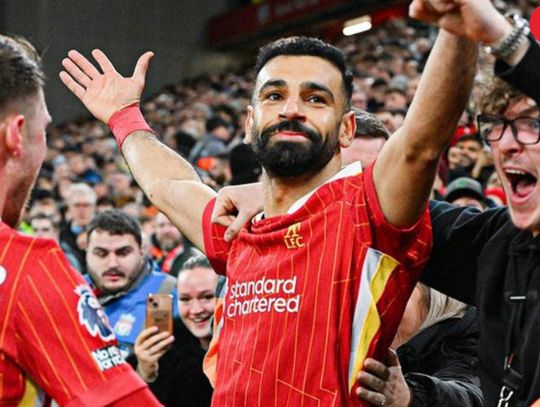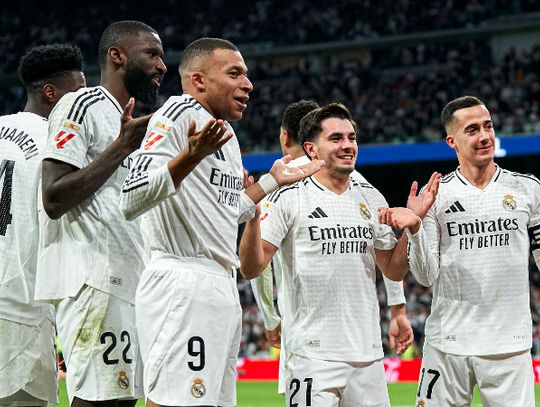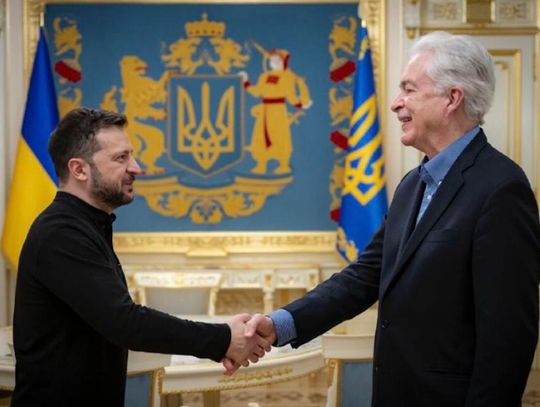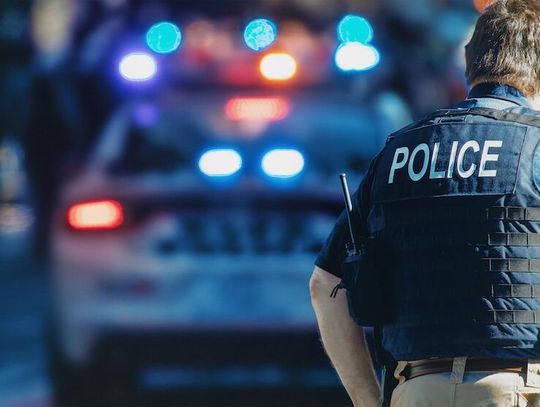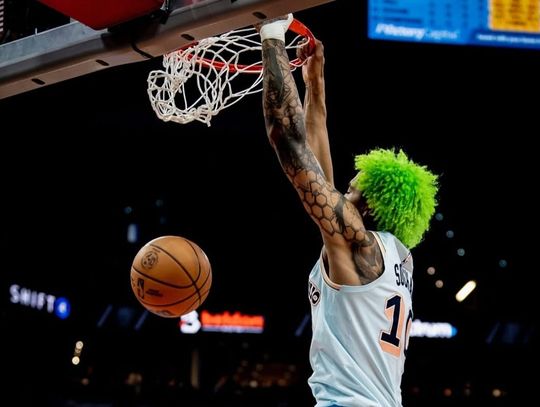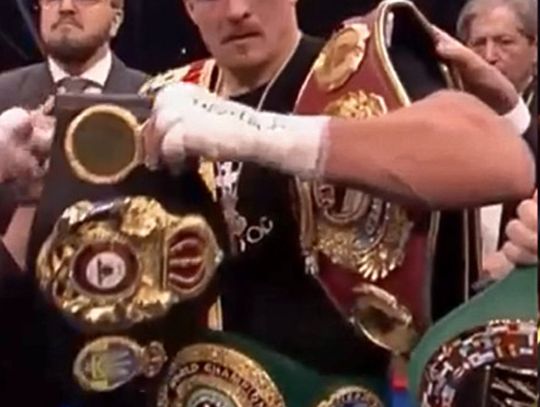Pozwolę sobie powiedzieć od razu, że myślę, iż wydarzenia z 6 stycznia w Waszyngtonie były zamieszkami. Wydaje mi się, że Trump próbował obalić wyniki legalnych wyborów, aby mógł zostać pierwszym nielegalnym prezydentem Stanów Zjednoczonych.
Skoro to powiedziałem, to pozwólcie, że wyjaśnię, dlaczego tutaj i dzisiaj.
Wielu z nas ogląda przesłuchania przed senacką Komisją 6 stycznia albo w ostateczności interesuje się tym, co się dzieje. Sondaże mówią, że 60 procent Amerykanów wie o przesłuchaniach i śledzi je. Wnioskuję z tego, że pozostałe 40 procent jest zajęte graniem w swoje gry wideo i oglądaniem w telewizji ludzi grających w golfa.
Ale najbardziej interesujące jest dla mnie to, że my oglądający te przesłuchania nie do końca zgadzamy się z tym, co oglądamy.
Opowiem wam o mojej rozmowie, którą odbyłem z przyjacielem. Ten facet jest mądry, bystry i odnosi sukcesy jako aktor i reżyser. Rozmowa z nim zawsze jest przyjemnością i czegoś mnie uczy.
Wczoraj wspomniałem mu, że oglądam przesłuchania przed Komisją 6 stycznia i czuję, że Trump powinien ponieść odpowiedzialność za próbę wzniecenia powstania, za zamieszki, podobnie jak Hitler, Charlie Manson i Osama Bin Laden powinni wziąć odpowiedzialność za zbrodnie, do popełnienia których zachęcali ludzi.
Mój przyjaciel – nazwijmy go Alex – roześmiał się i powiedział, że porównanie Trumpa do tych innych złoczyńców jest śmieszne i pokazuje brak zrozumienia po mojej stronie. Trump – powiedział Alex – nie jest faszystą.
Odpowiedziałem, że jeśli Trump nie jest faszystą, to dlaczego ciągle mówi o sfałszowanych wyborach jako uzasadnienie obalenia wyborów?
W odpowiedzi Alex zasugerował, że Trump wierzy albo nie wierzy, że wybory zostały sfałszowane. Trump ma często urojenia i jest megalomaniakiem. Mimo że wielokrotnie twierdzi, że zostały sfałszowane, to niekoniecznie oznacza, że w to wierzy. Może po prostu powtarza wszystkie teorie spiskowe tych, którzy mówią, że zostały sfałszowane. Alex starał się również podkreślić, że chociaż Trump zachęcał ludzi do inscenizacji zamieszek, niekoniecznie jest to przestępstwo. Poza tym, powiedział Alex, buntownicy, których wprowadzono w błąd, nie są złymi ludźmi. Byli niewinnymi kolesiami działającymi w dobrej wierze. Oczywiście było trochę wandalizmu, kilka rozbitych szyb i ludzie, którzy rozbili te szyby, powinni zostać ukarani za swój wandalizm. Ale ostatecznie całe to liberalne oburzenie na tych, którzy brali udział w zamieszkach, jest niezdrowe.
Byłem zaskoczony jego lekceważeniem ataku na Kapitol i wspomniałem o 5 osobach, które zmarły i 140 oficerach policji, którzy zostali ranni. Alex odpowiedział: „Ale o co chodzi? Obrażenia były przypadkowe, bo ludzie napierali na siebie”. Powiedział też, że nie widział żadnej okrutnej celowej przemocy czy zabijania. Wszystko, tak czuł, trochę wymknęło się spod kontroli.
Zdałem sobie wtedy sprawę, że nic, co Alex zobaczy czy usłyszy, nie sprawi, że poczuje, że to, co zrobił Trump, było zamierzone, a to, co zrobili jego zwolennicy, było złe. Zdałem sobie sprawę, że nie ma sensu dłużej o tym rozmawiać z Alexem.
W jego przekonaniu 6 stycznia był bardziej piknikiem niż zamieszkami.
Jan. 6: Insurrection or Picnic?
Let me say right off the bat that I think the January 6th events in Washington D.C. were an insurrection. Trump, I feel, tried to overturn the results of a legitimate election so he could be the first illegitimate President of the United States.
Having said that, let me tell you why this column is here today.
Many of us are watching the January 6th hearings or at least interested in knowing what’s going on. The polls say that 60% of Americans are aware of the hearings and follow them. I’m assuming that the other 40% are busy playing with their video games or watching people on TV drive golf balls.
But what’s interesting to me is that those of us watching the hearings don’t actually agree on what we’re seeing.
Let me tell you about a conversation I had with a friend. This guy is smart, clever, and successful as an actor and director. Talking to him is always a pleasure and an education.
Yesterday, I mentioned to him that I’ve been watching the January 6th hearings and that I felt Trump should take responsibility for the attempted insurrection, just the way Hitler and Charlie Manson and Osama bin Laden should have taken full responsibility for the crimes they encouraged people to commit.
My friend – I’ll call him Alex – laughed and said that comparing Trump to Hitler and these other villains was ridiculous and showed a lack of understanding on my part. Trump, Alex said, is no fascist.
I responded by saying that if Trump isn’t a fascist, why does he keep talking about the election being rigged as a justification for overturning the election?
Alex answered by suggesting that Trump may or may not believe that the election was rigged. Trump is often just delusional and megalomaniacal. Even though he repeatedly says it was rigged, this doesn’t necessarily indicate he believes it. He may just be echoing all the conspiracy theorists who say it was rigged. Alex also tried to make the point that even though Trump encouraged people to stage this riot, that’s not necessarily a criminal act. Besides, Alex said, the rioters who were misled are not bad people. They were innocent folks acting in good faith. Sure, there was some vandalism, some broken windows, and the people who broke those windows should be punished for their vandalism, but finally all of this liberal outrage against these people who rioted is unhealthy.
I was surprised by his downplaying the attack on the Capitol, and I mentioned the 5 people who died and the 140 police officers who were injured. Alex said, “What’s the big deal? The injuries were accidental, people pushing against each other.” He said he didn’t see any kind of vicious intentional violence or killing. Things, he felt, just got a little out of hand.
I realized then that nothing Alex would see or hear would make him feel that what Trump did was intentional and that what his followers did was wrong. I realized there was no point in talking to Alex any longer about this.
In his mind, January 6 was more a picnic than an insurrection.
John Guzlowski
amerykański pisarz i poeta polskiego pochodzenia. Publikował w wielu pismach literackich, zarówno w USA, jak i za granicą, m.in. w „Writer’s Almanac”, „Akcent”, „Ontario Review” i „North American Review”. Jego wiersze i eseje opisujące przeżycia jego rodziców – robotników przymusowych w nazistowskich Niemczech oraz uchodźców wojennych, którzy emigrowali do Chicago – ukazały się we wspomnieniowym tomie pt. „Echoes of Tattered Tongues”. W 2017 roku książka ta zdobyła nagrodę poetycką im. Benjamina Franklina oraz nagrodę literacką Erica Hoffera za najbardziej prowokującą do myślenia książkę roku. Jest również autorem serii powieści kryminalnych o Hanku i Marvinie, których akcja toczy się w Chicago oraz powieści wojennej pt. „Retreat— A Love Story”. John Guzlowski jest emerytowanym profesorem Eastern Illinois University.-John Guzlowski's writing has been featured in Garrison Keillor’s Writer’s Almanac, Akcent, Ontario Review, North American Review, and other journals here and abroad. His poems and personal essays about his Polish parents’ experiences as slave laborers in Nazi Germany and refugees in Chicago appear in his memoir Echoes of Tattered Tongues. Echoes received the 2017 Benjamin Franklin Poetry Award and the Eric Hoffer Foundation's Montaigne Award for most thought-provoking book of the year. He is also the author of two Hank Purcell mysteries and the war novel Road of Bones. Guzlowski is a Professor Emeritus at Eastern Illinois University.



